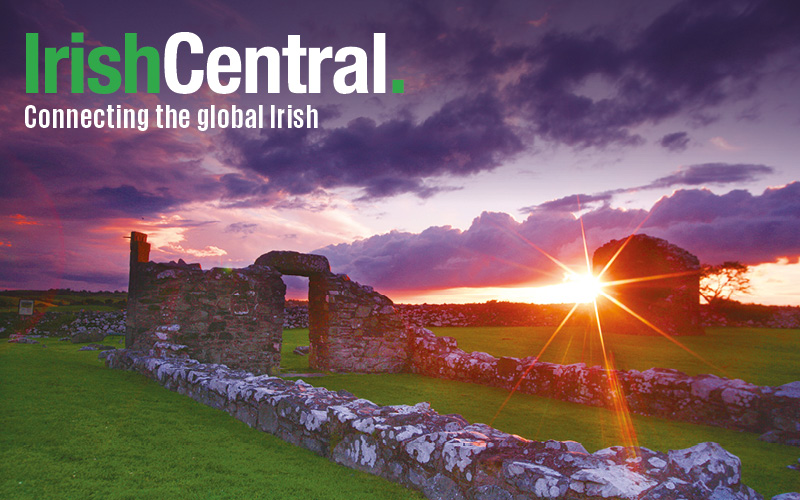| Jack Coen |
Last Thursday another Irish immigrant would be buried from there whose contributions to his adopted home in America were recognized as unique and significant, and “a national treasure” by the National Endowment for the Arts in Washington, D.C. as far back as 1991.
For a gentleman like John “Jack” Coen from Woodford, Co. Galway, the status of National Heritage Fellow stood alongside his other achievements living the American dream as husband, father, worker and citizen in the best way he knew how by simply being himself.
Coen would have been 87 on April 18, and his departure at age 86 leaves a deep void.
The church would have served as the parish for the Coen family headed by Jack and Julia and their five children (Mary, Bernadette, Kathleen, James and Shaun) for 40 years.
It was expansive enough to hold the gathering assembled to honor Coen after two days of waking at Hodder’s Funeral Home and just before his interment at Gate of Heaven cemetery in Valhalla.
Jack’s brother, Monsignor Charles Coen, was the principal celebrant at the Mass. He remarked that the day’s congregation represented “three layers” of the community he cherished -- the community of faith in the parish, his extended family, and last but very significantly, the large number of musicians touched by Jack over the years.
Among the musicians in the church were Mick Moloney, Martin Mulhaire, Seamus Connolly, Brian Conway, Sean Tierney, Martin Reilly, Don Meade, Pio Ryan, Dylan Foley, Dan Gurney, Denis Donahue, Felix and Brendan Dolan and Cathy Hornberger, most of whom would later share some chunes in memory of Jack at a repast luncheon at the nearby Rory Dolan’s.
In keeping with Jack’s wishes, Irish music was played outside the church as the remains were removed to the hearse, except for the Irish air “Mo Mhathair” (My Mother), played by Jack’s brother Tony on the fiddle after Communion. He came over from Ireland for the sad occasion.
Graveside, fiddler Seamus Connolly represented the body of musicians as he played the old hymn “Sacred Heart of Jesus.”
Jack’s musical legacy was captured on recordings with his brother Charlie, including The Branch Line in 1976, with friends Seamus Connolly from Clare, and Martin Mulhaire from neighboring Eyrecourt in Galway on Warming Up in 1993, both on Green Linnet Records, and with his son Jimmy on Traditional Irish Music on Flute and Guitar in 2001 which was self-issued.
After arriving in America in 1949, Jack fulfilled the role of tradition bearer of the East Galway music style in dance bands where it mattered in early years and house parties or sessions, and then on national stages after Dr. Mick Moloney “discovered” he and other musicians playing the music from home shortly after his own arrival in 1973.
Exposure at the Smithsonian Festival of American Folk Life during the 1976 Bicentennial and subsequent tours of the Green Fields of America helped garner the National Heritage Award, but also deserved recognition for one the truly great Irish masters from the ould sod.
But what Jack could be most proud of in Irish music was the impact he had on his many students, whether they were local or lucky enough to spend expansive time with him at summer schools like the Augusta Heritage Center Irish Week or the Catskills Irish Arts Week.
Along with the tunes, they were told stories associated with them in the best of the oral tradition which made them more memorable.
All his students wouldn’t be All-Ireland champions like Joanie Madden or Sean Tierney, but as far as Jack was concerned they would be well schooled in his classes about why the music was important. It was the personal touch that will remain alongside the documented history for all of his students and musical admirers.
As his daughter Kathleen mentioned in the eulogy in the church, Jack often said “music was a gift from God” which he shared willingly and completely and we are all the better for it.
Happy first birthday in heaven, Jack, and look forward to meeting one day on the other side!




Comments